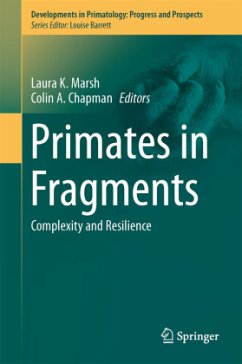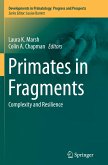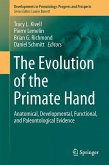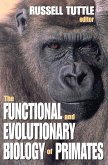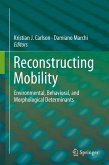This book is number two in a series for Primates in Fragments. In this volume, ten years after the first, we continue to address issues regarding primates within a fractured landscape. There are seven sections based on specific categories of primates in fragments. In the Introductory section, authors discuss the issues surrounding primates in remnant habitats as well as encourage discussion about what we mean by fragmentation on a landscape scale. In the Long-Term and Regional Studies section, authors present information on changes that have occurred during longer studies as well as changes that have occurred over regions. In the Landscape, Metapopulations and the Matrix section, authors cover topics from dry to moist forests, and from metapopulations to single species use of multiple fragments locations. In Feeding and Behavioral Ecology, authors take a closer look at the flexibility and responsiveness of primates in fragments in terms of their food choices, resource use, and behavioral changes. In Endemic, Endangered, and Nocturnal Primates authors uncover details involving critical primates living in major city centers to the heights of the Himalayas. In Genetics, Disease and Parasites authors cover topics including population viability, disease and parasite transmission between primates in fragments and humans. Finally, in the Conservation and Ecology: Threats and Management section, we synthesize information in this volume and make recommendations for the future of work in this field and the survivability of primates in fragments.
From the reviews:
Selected by Choice magazine as an "Outstanding Academic Title" for 2014
"The volume covers all major areas of research relevant to understanding primate habitat fragmentation and conservation implications, and additionally summarizes the conservation status of several nonhuman primate populations that are most impacted by habitat fragmentation. The color photographs illustrate the book nicely throughout. ... this book is an excellent and critical starting point. Summing Up: Essential. Upper-division undergraduates through professionals in primatology." (L. Swedell, Choice, Vol. 51 (10), June, 2014)
Selected by Choice magazine as an "Outstanding Academic Title" for 2014
"The volume covers all major areas of research relevant to understanding primate habitat fragmentation and conservation implications, and additionally summarizes the conservation status of several nonhuman primate populations that are most impacted by habitat fragmentation. The color photographs illustrate the book nicely throughout. ... this book is an excellent and critical starting point. Summing Up: Essential. Upper-division undergraduates through professionals in primatology." (L. Swedell, Choice, Vol. 51 (10), June, 2014)

